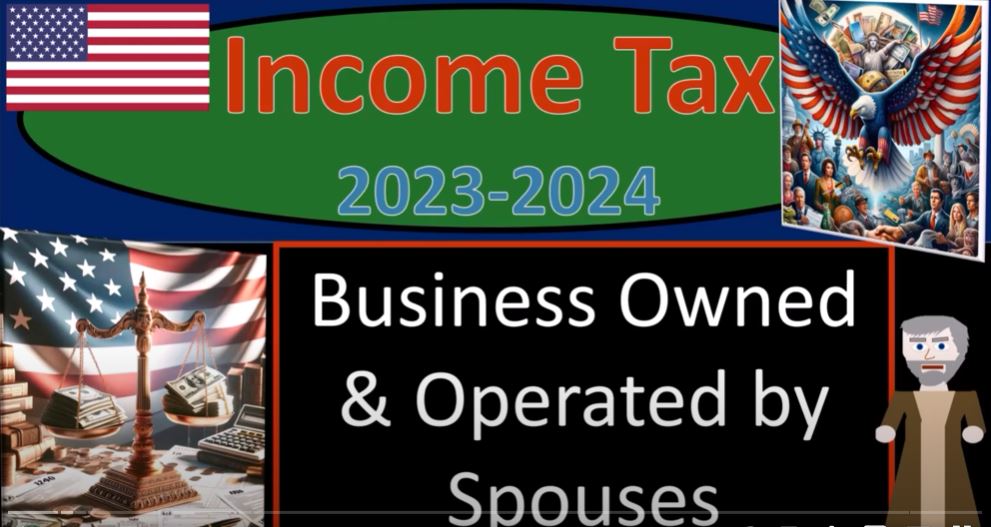Grab your coffee and get ready because when it comes to life, there are two certainties: death and taxes. And while the former might be out of our control, the latter requires some serious attention, especially for business owners. Let’s dive into the intricacies of income tax for businesses owned and operated by spouses in the year 2023.
Understanding the Income Tax Formula
Before we delve into the specifics, let’s understand the income tax formula. It mirrors the calculation for Form 1040, essentially resembling a funny income statement. Just like a regular income statement, it starts with income minus deductions, resulting in taxable income. For sole proprietorships filing Schedule C, income comes from another schedule, where income minus expenses equals net income, which then rolls into line one of the income tax formula.
The Spousal Partnership Conundrum
Owning and operating a business as spouses may seem straightforward, but it comes with its own set of challenges. While married couples are viewed as a single entity for federal income tax purposes, issues arise when it comes to Social Security and Medicare.
Social Security and Medicare contributions are tied to individual Social Security numbers, creating a dilemma for spousal businesses. Allocating these contributions becomes crucial, as they impact future retirement benefits, which are calculated based on individual earnings.
Partnership or Sole Proprietorship?
Typically, businesses owned by spouses are considered partnerships. However, exceptions exist based on community property laws and the Qualified Joint Venture (QJV) election.
Community property laws in states like Arizona, California, and others allow spouses to treat their business as either a sole proprietorship or a partnership. This flexibility depends on state regulations and reporting positions.
The QJV election offers an alternative to partnership taxation. If both spouses materially participate in the business and file a joint return, they can opt for QJV status. This simplifies tax filings while ensuring each spouse receives credit for Social Security earnings.
Navigating Tax Elections
Choosing the right tax election requires careful consideration. While partnerships offer certain benefits, they also entail complex tax filings, including Form 1065 and K-1 distributions. QJV status simplifies tax filings but still requires meticulous allocation of income and expenses between spouses.
Ultimately, the decision hinges on individual circumstances, state laws, and long-term financial goals. Consulting with a tax professional can provide invaluable guidance in navigating these complexities and maximizing tax advantages.
Conclusion
In the ever-evolving landscape of income tax regulations, businesses owned and operated by spouses face unique challenges. From navigating partnership taxation to optimizing Social Security contributions, careful planning is essential to ensure compliance and maximize benefits.
So, as you sip your coffee and tackle your tax returns, remember the importance of understanding the nuances of income tax laws for spousal businesses. With proper planning and informed decision-making, you can navigate the intricacies of tax season with confidence.

